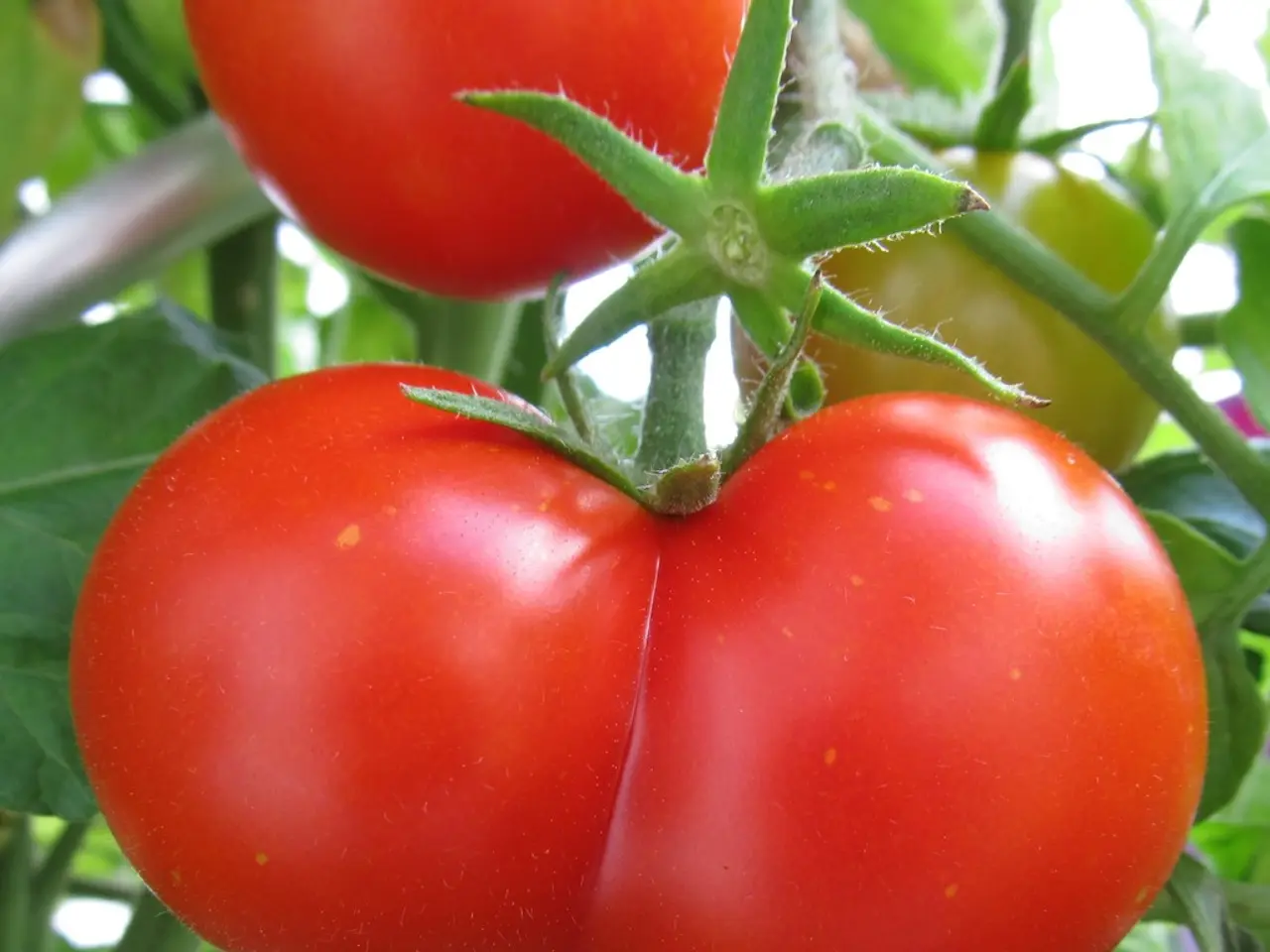Unveiling the Mechanisms of Plant Defense Management by Cell Publishing
In a groundbreaking discovery, researchers from the University of Tübingen and the University of Hohenheim have uncovered a previously unknown peptide called AntiSys in tomato plants. This finding, published in Cell (2025) and available at this link: https://doi.org/10.1016/j.cell.2025.07.044, sheds light on the intricate balance between growth and defense in these plants.
Tomato plants possess an astonishingly fine-tuned defense system that safeguards them from pests and pathogens. At the heart of this system lies a signal molecule called systemin, which triggers defense reactions in the plant's cells when, for example, insects cause feeding damage.
However, it appears that this defense system is not only about activating responses. The tomato plant also contains a gene cluster encoding four structurally similar peptides or their precursor proteins, in addition to the gene for systemin. Among these peptides, AntiSys stands out as a natural antagonist that prevents excessive immune responses.
AntiSys has an opposite activity to the three peptides that are similar to systemin in their activity, triggering immune reactions. By binding to the same receptor as systemin, AntiSys inhibits its activation, thus maintaining the balance between growth and protection.
Without AntiSys, there are disturbances in growth and development similar to a chronic inflammatory reaction. These issues manifest in significant growth problems, fewer fruits, and severe malformations in tomato plants.
The discovery of AntiSys suggests that similar antagonists may exist in other plant species, expanding our understanding of plant immunity. Moreover, the researchers see striking parallels between the role of AntiSys in tomatoes and the function of special antagonists in the human immune system.
For media inquiries, please contact Prof. Dr. Andreas Schaller (University of Hohenheim) or Prof. Dr. Georg Felix (University of Tübingen). The team looks forward to continuing to unravel the mysteries of plant immunity and the role of natural antagonists in maintaining balance.








